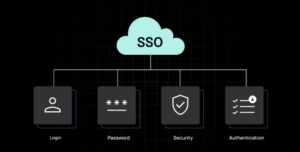
Problemas actuales educativos que vale la pena investigar—or “current educational problems worth investigating”—have taken center stage in global discussions on reforming academic systems. From technology gaps to mental health concerns, the education sector faces numerous challenges that demand thorough examination and innovative solutions. In today’s evolving world, understanding these problems is crucial for anyone invested in creating equitable, effective, and future-ready educational experiences.
In this article, we dive deep into five urgent and complex educational issues that deserve attention, offering insightful analysis, creative perspectives, and potential research directions. Whether you’re a student, teacher, researcher, or policymaker, this guide will equip you with the knowledge and inspiration needed to explore transformative educational change.
The Digital Divide in Education
The digital divide remains one of the most pressing problems actuales educativos que vale la pena investigar, especially in the wake of the COVID-19 pandemic. Millions of students globally still lack access to reliable internet, devices, or even basic digital literacy. This gap reinforces socioeconomic inequality, leaving underserved students even further behind academically and socially.
Problemas actuales educativos que vale la pena investigar Investigating the digital divide opens doors to a wealth of research questions. What are the long-term effects of unequal access to technology? How can schools design inclusive digital strategies? Solutions may include government-funded programs, public-private partnerships, and digital infrastructure improvements, but their impact must be critically evaluated to ensure no student is left disconnected from learning.
Mental Health and Student Well-being
Another problemas actuales educativos que vale la pena investigar is the rise of mental health issues among students. Anxiety, depression, and burnout are increasingly common across all education levels, from primary schools to universities. Academic pressure, social media, and lack of emotional support contribute to a mental health crisis that severely affects learning outcomes and personal growth.
Research in this area can explore the effectiveness of school-based mental health programs, the role of counselors, and how teaching practices can become more empathetic. Implementing wellness curricula, peer support systems, and mindfulness training are strategies being tried in some regions—but more in-depth analysis is needed to assess their sustainability and adaptability across different educational environments.
Outdated Curricula and Lack of Practical Skills
Many education systems still rely on rigid, outdated curricula that fail to equip students with the skills they need in the 21st century. This is a major problema actual educativo que vale la pena investigar as it directly affects the employability and adaptability of future generations. Traditional rote learning methods don’t prepare students for careers that demand creativity, critical thinking, digital fluency, and collaboration.
This challenge raises essential research questions: How can education become more aligned with real-world skills? Should curricula be co-designed with industry experts or influenced by regional job market trends? Exploring how project-based learning, STEAM education, and entrepreneurship modules impact long-term success can lead to a more responsive and dynamic educational model.
Teacher Burnout and Lack of Support
Teachers are the backbone of any educational system, yet teacher burnout is becoming alarmingly widespread. Long hours, limited resources, administrative overload, and lack of recognition contribute to high attrition rates. This serious problemas actuales educativos que vale la pena investigar calls for urgent action and systemic support.
Research into this issue can assess policies that protect teacher well-being, from reduced classroom sizes to professional development initiatives and emotional resilience training. Additionally, comparative studies on teacher support systems in different countries may offer models for better working conditions, higher retention, and ultimately improved student performance.
5. Equity and Inclusion for Marginalized Students
Educational inequality remains a deep-rooted problema actual educativo que vale la pena investigar, especially for marginalized groups—students with disabilities, minorities, indigenous communities, and non-native language speakers. These students often face systemic barriers to access, participation, and success in education.
Problemas actuales educativos que vale la pena investigar Investigating how policies can create inclusive learning environments is key. This includes exploring differentiated instruction, culturally relevant pedagogy, and the integration of assistive technologies. Evaluating inclusion models in diverse socio-political contexts can provide insights into building more just and representative education systems worldwide.
Conclusion
As we’ve explored, the problemas actuales educativos que vale la pena investigar are complex, interwoven, and urgently in need of attention. From the digital divide to curriculum reform and mental health, these challenges offer fertile ground for meaningful research and innovative solutions. By investigating these pressing issues, we not only improve educational outcomes but also shape a more inclusive, resilient, and forward-thinking global society.
Whether you’re pursuing an academic thesis or seeking real-world change, the topics discussed in this article offer a solid foundation for impactful educational inquiry. The future of learning depends on our willingness to ask the hard questions—and find bold answers.
Frequently Asked Questions (FAQs)
1. What are the most common current educational problems worldwide?
Digital inequality, mental health issues, outdated curricula, teacher burnout, and lack of equity are among the most pressing problems in today’s education systems.
2. Why is the digital divide a critical problem in education?
It creates unequal opportunities for students, limiting access to online resources, learning platforms, and essential digital skills.
3. How can schools support student mental health?
By integrating emotional support programs, hiring mental health professionals, and promoting open discussions about well-being.
4. What does curriculum modernization involve?
It includes updating content to reflect real-world needs, incorporating critical thinking, creativity, digital literacy, and interdisciplinary learning.
5. How does teacher burnout affect student performance?
Burned-out teachers often experience decreased motivation and productivity, which negatively impacts classroom engagement and student outcomes.
6. What strategies improve teacher support?
Offering professional development, reducing workload, fair compensation, and providing emotional and administrative support.
7. How can we ensure inclusive education for marginalized groups?
Through policy reforms, inclusive teaching methods, accessible infrastructure, and awareness training for educators.
8. Are traditional educational models still effective?
Not entirely. Many traditional methods do not align with the evolving needs of modern learners and the job market.
9. What role does research play in solving educational problems?
It provides evidence-based insights, evaluates the effectiveness of interventions, and helps design informed policies.
10. Can educational challenges differ by region?
Yes, factors such as economic status, political climate, culture, and technology access influence the nature and severity of educational challenges.







